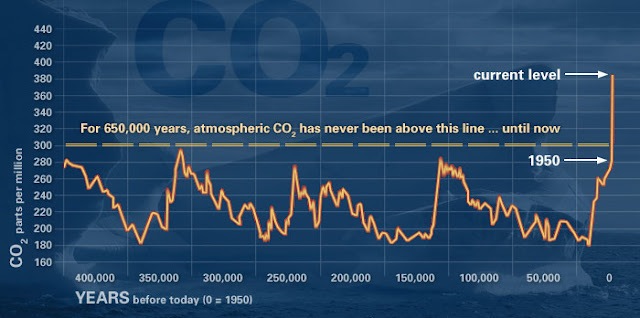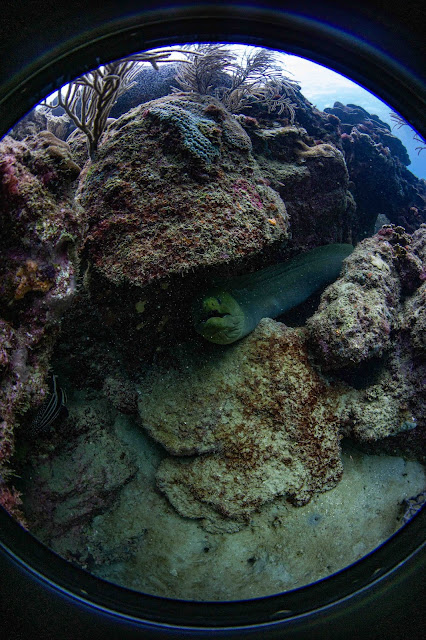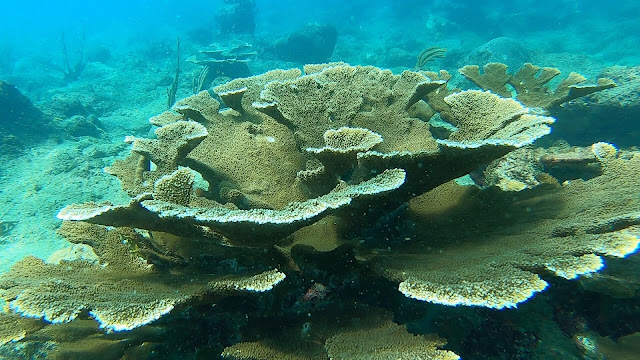BUCCOO IN THE TIME OF CLIMATE CHANGE
How will climate change impact Trinidad and Tobago? What will sea level rise mean for settlements on coastal fringes, including Trinidad’s Port of Spain and Tobago’s bayside communities? Dr Anjani Ganase, marine scientist, spells out predictions of the IPCC (Intergovernmental Panel on Climate Change) Special Report 1.5, and makes an urgent call to action.
Since the beginning of the industrial era (1880-1900), just over a hundred years ago, humans have put enough carbon dioxide into the atmosphere to raise the global temperature by nearly one degree Celsius. This is rapid accelerated warming; before that, historical changes in the planet’s temperature occurred over several hundred-thousands of years. Even then it was associated with mass extinction events. Today, the global community is treading a dangerous path, almost past the point of no return. Our future will be hotter and more extreme; temperatures will continue to rise because of what we’ve already pumped into the atmosphere. How hot and devastating the impact of this rapidly changing climate will be, depends on our continued use of fossil fuels, and our continuing preference for short-term personal economic gains, rather than long-term investments in the greater good for all human and natural ecosystems.
The consequences of our actions and inactions will be felt for centuries by future generations, but it is already being felt today, with one-degree temperature increase. In the coming 15-30 years, we must expect dramatic impacts as global temperature is expected to rise by 1.5 C. This is not a lot of time for the changes we need to make. In its recent report, the IPCC - hundreds of scientists worldwide - records the severity of the impacts from 0.5 C rise, and anticipates exponentially more severe impacts with a further 1 degree C increase (IPCC SR 1.5). Their message demands urgent action for the sake of our lives, livelihood and our children’s livelihood. If you trust your doctor’s advice on your health, you would be sure to heed the words of caution from hundreds of top scientists around the world because this will impact every part of your life, not only your health. Here are some of the advisories from the IPCC Special Report 1.5 that are relevant to us in Trinidad and Tobago:
MORE INTENSE WEATHER
The temperature of our environments – land and sea – is getting warmer. Tropical countries will experience an increase in the number of hot days. There will be more extreme weather events, more intense rainfall associated with hurricanes and flashing flooding. However, there will also be more severe periods of drought in different regions. For Trinidad, this may indicate more extreme dry and rainy seasons.
 |
| Coral bleaching of Orbicella annularis (Boulder star coral), a major reef builder on Buccoo Reef. Photo by Jahson Alemu |
RISING SEA LEVEL
Sea levels will rise but the rate will depend on our emissions trend. A slower rate will allow for adaptation strategies to be implemented by governments. This is pertinent for small island nations, such as T&T where most of our communities are in coastal and low-lying areas. A sea-level rise of 0.1 m (2.5 inches) may displace 10 million persons around the world. The risks associated with sea-level rise includes saltwater intrusion of low-lying coastal areas, wetlands and freshwater sources, increased flooding due to lower run off capabilities, damage to infrastructure, displacement of coastal communities and coastal erosion. Think about Port of Spain, Caroni, Crown Point and Buccoo in Tobago, and every fishing village in every bay in Trinidad and Tobago.
LOSS OF BIODIVERSITY; LOSS OF FOOD
Trinbagonians should expect losses in biodiversity and ecosystems on land as animal and plant species become unable to tolerate new or altered conditions stemming from higher temperatures. On islands, there is very limited space for adaptation – for plants and animals to shift their distribution to cooler areas or inland to less salty soil conditions. These shifts will inevitably squeeze our more vulnerable but valuable ecosystems, such as our freshwater and coastal ecosystems. This will impact on their services to us. Think about our agricultural lands and the shifts in soil and weather conditions, that will impact crops and fruit trees. Think about our pollinators (insects), our fisheries, where habitat loss and warming waters will drive native fish populations to higher latitudes with cooler environments. For organisms that can’t migrate – such as trees and corals - less tolerant species will die off. Imported foods, such as rice and maize, will be impacted by climate change in other regions. Think about what plants and animals, if any, can replace the lost ecological roles. This is why conserving our biodiversity is of utmost importance.
ACIDIC OCEANS
Our oceans are becoming more acidic and will impact our coral reefs and anything made of calcium carbonate (most creatures with a external carapace or shell – crabs, lobster, conch – some of which are economically important). The oceans will also contain lower oxygen levels as a result of higher temperatures which will impact the survival of all marine life. Dead zones devoid of oxygen where no marine life - except bacteria - occurs will continue to expand. Think about our estuaries, our deep-water harbours, our fisheries and the water quality of popular beaches and lagoons in Chaguaramas and Tobago.
POVERTY AND CRIME
These environmental impacts as a result of climate change will have consequential effects increasing risks to health, livelihood, food security, water supply and human security, stifling economic growth. Groups that are especially vulnerable are disadvantaged groups and vulnerable populations – communities dependent on agriculture and fisheries, coastal communities and small island nations overall. As natural resources become depleted, poverty will increase, as will other disadvantages; the result will be an increase in crime.
MORE HEALTH RISKS
Global warming will impact our health with an increase in vector-borne diseases (Malaria, Zika, Dengue) but it also aggravates the severity of other diseases (respiratory and cardiovascular diseases) with higher risk of mortality.
Climate change adaptation and mitigation plans are already being integrated into national policies, and actioned in the public and private sectors, especially those related to agriculture, health, water management, infrastructure and urban planning of some countries. There is also a shift to ecosystem based adaptations, restoration and conservation of natural habitats to facilitate natural adaptations and to maintain biodiversity. Food and health security are high on the list of challenges that tropical island ecosystems face.
ENERGY SHIFTS AWAY FROM FOSSIL FUELS
The mitigation pathways recommended by the global scientific community include transitioning away from oil and gas and investment in green energy, engineering and architecture. Of course, the primary focus of this is to reduce to carbon footprint, however “small” the contribution is (and by the way, Trinidad and Tobago is not a “small” contributor of green house gas). The other benefit of this is to gain competitive ground by setting our economies for the inevitable shift away from fossil fuels. Investment in business and technological innovation, downsizing energy consumption by transforming our transport and building infrastructure are major mitigation pathways. Trinidad and Tobago must move quickly to transition from its dependency on oil and gas; as well as from the “luxuries” afforded by oil and gas wealth.
WE ARE ALL IN THIS TOGETHER
Finally, the other major strategy is international cooperation with countries to build partnerships.
The Government of Trinidad and Tobago seems not to have included climate change mitigation strategies in any of its plans to turn the country’s economy around. Climate change discourse is not present in the rhetoric of government ministers. There was no mention of it in the annual budget. Continuing down the path of oil and gas, and the cycle of short-sighted four year plans of resource extraction, construction, construction and more construction – a well-worn path of TT administrations since independence - will cripple Trinidad and Tobago’s economy and expose citizens to the worst effects of climate change. It’s already happening. Misinformation and inaction from governments and leaders will surely cripple us.
Do we wish to continue to follow leaders who remain with their heads in the sand, pleading ignorance or inability, or blaming the other? Maybe it’s even much more sinister – knowingly ignoring the problems for short-term profits and then willingly side-stepping the issues for someone else to pick up. There is no bigger challenge that any government and people of Trinidad and Tobago will face than climate change. Business as usual in Trinidad will not benefit us or future generations. It is urgent for every citizen in Trinidad and Tobago to demand action from our governments specifically against climate change. Citizens must also know that we will all have to be active participants. We must seek innovation, conservation and adaptation rather than wait for someone to save us. Climate change demands a vibrant active democracy.
Reference:
IPCC, 2018: Summary for Policymakers. In: Global warming of 1.5°C. An IPCC Special Report on the impacts of global warming of 1.5°C above pre-industrial levels and related global greenhouse gas emission pathways, in the context of strengthening the global response to the threat of climate change, sustainable development, and efforts to eradicate poverty [V. Masson-Delmotte, P. Zhai, H. O. Pörtner, D. Roberts, J. Skea, P.R. Shukla, A. Pirani, W. Moufouma-Okia, C. Péan, R. Pidcock, S. Connors, J. B. R. Matthews, Y. Chen, X. Zhou, M. I. Gomis, E. Lonnoy, T. Maycock, M. Tignor, T. Waterfield (eds.)]. In Press.






